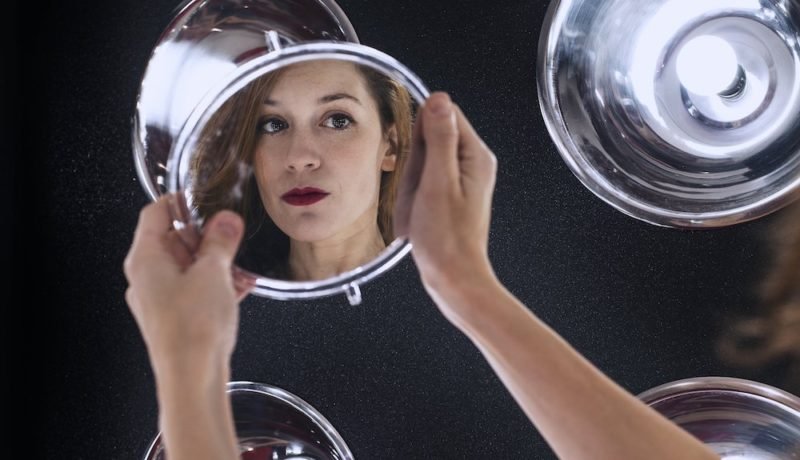
Yesterday, I revived a post I wrote in 2014 on a memorable talk on perfectionism I attended by Debora Spar, author and former president of Barnard College. Today, I continue that thread, talking about how beauty myths have grown stronger as women tried to “have it all.”
Before 1963, Spar said, women were expected to look pretty, get married, have babies and cook dinner. Spar said this was limiting and confining, but it was achievable. Today, women are expected to do all of those things plus run a Fortune 500 company (OK, usually figuratively, but sometimes literally).
“As we added expectations to women’s lives, we didn’t take anything away,” she said. “We’ve upped expectations much more in girls than in boys.”
These expectations involve both appearance and achievement. “We’re expecting three-year-olds to look like porn stars [a reference to shows like “Toddlers and Tiaras”] while they become engineers,” Spar said. “I see these girls when they are 17, and they are exhausted.”

Beauty myths
Spar said that one of the original ideals of feminism was that we were supposed to stop evaluating women on the basis of their physical appearance. Instead, she said, “We have upped and upped the ante of what an attractive women is supposed to look like. I’m not sure we’ve evolved all that much since the era of the corset.
“This vision of the ideal body is very difficult for most people to attain,” she said. “Even the most beautiful women in the world are being digitally enhanced.”
Spar said that even when girls “know” that photos of models and celebrities have been Photoshopped, sometimes dramatically, as they are flipping through fashion magazines, they don’t really know it, and they still internalize the many ways that they don’t measure up.
“We’re selling young women this incredible myth, but collectively we’re all buying into it,” she said. “You have to look like you’re 17 from the time you are three until the time you are 87. There are no wrinkles allowed in New York City. Seriously…they stop you in New Jersey.”
Domestic goddesses?
The pressure to be perfect doesn’t stop with appearance or career performance…it extends into the home as well. “We are doing housework at a higher level and a more intense level than our grandmothers.”
Spar gave the example of school bake sales that push already harried working moms to make elaborately decorated cupcakes that take four hours to make but still look nothing like the photograph in Real Simple magazine (“Nothing in Real Simple is simple.”).
“Women are being evaluated all the time on things that have nothing to do with professional characteristics, “ she said. (Primarily, their appearance and their abilities as a mother.) Spar pointed out that almost any article about Facebook COO Sheryl Sandberg or former Yahoo CEO Marissa Mayer will mention their clothes or their daycare arrangements. The same cannot be said about interviews with male CEOs. “No one expects the superstar CEO to be a superstar dad.”
So, why is this a problem? Why was this topic relevant to a keynote talk at a conference for eating disorder professionals? “Eating disorders are the disease of the perfect girls,” said Spar, who herself struggled with anorexia in the past, although this was not a focus of her talk.

Changing the channel
So, what’s the answer?
- “We have to give up on the notion of perfection. We need to trumpet real people instead of perfect people, tell the bad stories, the messy stories,” Spar said. “We don’t need to show all of our dirty laundry, but we need to show some of it.”
- “Women need to be taught that life has trade-offs. In the end, it’s about the math. Something has got to give. It’s doable, but it may mean not having kids,” she said. “It may mean having a spouse who doesn’t have as stellar a career.”
“If all we’ve done is make women miserable and exhausted all the time,” Spar said, “then we’ve lost the plot [of feminism].”
Further reading
Here are links to a few interesting interviews with/articles about Spar that follow the same lines as her Renfrew talk:
- Women can’t have it all…and shouldn’t even try.
- Today’s “Wonder Women” must reframe feminism.
- Striving to have it all, and the recalculating. [Book review]
Disclaimer: All information provided here is of a general nature and is furnished only for educational purposes. This information is not to be taken as medical or other health advice pertaining to an individual’s specific health or medical condition. You agree that the use of this information is at your own risk.
Hi, I’m Carrie Dennett, MPH, RDN, a weight-inclusive registered dietitian, nutrition therapist and body image counselor. I offer compassionate, individualized care for adults of all ages, shapes, sizes and genders who want to break free from eating disorders, disordered eating or chronic dieting. If you need to learn how to manage IBS symptoms with food, or improve your nutrition and lifestyle habits to help manage a current health concern or simply support your overall health and well-being, I help people with that, too.
Need 1-on-1 help for your nutrition, eating, or body image concerns? Schedule a free 20-minute Discovery Call to talk about how I can help you and explore if we’re a good fit! I’m in-network with Regence BCBS, FirstChoice Health and Providence Health Plan, and can bill Blue Cross and/or Blue Shield insurances in many states. If I don’t take your insurance, I can help you seek reimbursement on your own. To learn more, explore my insurance and services areas page.
 Print This Post
Print This Post






